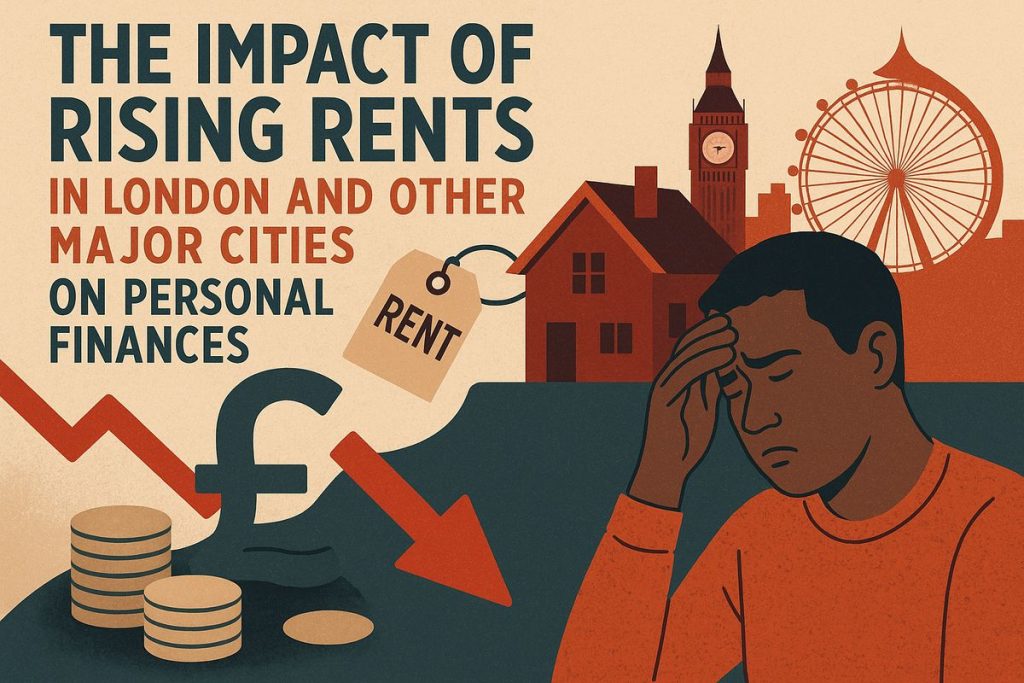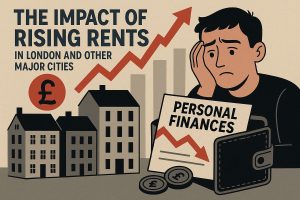Managing finances in today’s major cities has become increasingly difficult as rent prices soar to record highs. In places like London, New York, and Paris, housing costs have grown faster than salaries, leaving residents struggling to cover basic living expenses.
The rental crisis is forcing people to make tough financial decisions — cutting leisure spending, delaying big purchases, or even moving to smaller homes. For many urban dwellers, maintaining stable finances now requires careful planning, new saving strategies, and constant adaptation to a volatile housing market that continues to shift unpredictably.
Why housing costs are climbing so quickly

Rental prices continue to rise due to a combination of factors — low housing supply, high demand, and elevated interest rates discouraging home ownership. In dense cities like London, limited space and strong migration have driven up competition among tenants.
This situation directly affects tenants’ finances, as rent often consumes nearly half of their income. For young professionals, this means less room to save or invest, while for families, it can mean sacrificing other essentials. The rising cost of accommodation has become one of the greatest challenges to maintaining financial stability in urban life, affecting millions of people across the world.
The hidden toll on everyday life
Beyond paying rent, there’s an invisible emotional and financial burden that impacts daily living. High housing costs reduce disposable income and strain overall finances, forcing residents to make difficult choices between basic needs. Many find themselves postponing medical appointments, social activities, or personal goals just to stay afloat. This constant financial tension also affects relationships and mental health, as the pressure to keep up with rent payments leaves little space for relaxation, rest, or self-care.
As a result, many are cutting expenses on essentials such as food, transportation, healthcare, or even childcare just to afford rent. Some choose longer commutes or shared living arrangements to balance costs. Over time, this continuous financial pressure erodes well-being, limits opportunities for education or travel, and leaves little room for future planning or unexpected emergencies, creating a cycle of ongoing financial stress.
How it affects long-term financial stability
When rent takes a disproportionate share of income, saving becomes increasingly difficult. Without a safety net, individuals face greater vulnerability to financial shocks such as job loss, illness, or sudden increases in living expenses. This weakens their overall finances and often pushes them into credit card debt or reliance on short-term loans.
Over time, this pattern prevents wealth building and delays milestones like purchasing property or starting a family. The widening gap between renters and homeowners shows how housing costs are shaping not just lifestyles, but long-term economic security and personal finances across major metropolitan areas worldwide.
Budgeting strategies that make a difference
To cope with growing rental pressure, a structured budget is essential. Experts recommend that housing expenses not exceed 35% of one’s income — a target that many Londoners find nearly impossible to reach. Using digital tools such as Mint, YNAB, or PocketGuard helps individuals track spending habits and stay in control of their finances.
Another effective strategy is to explore additional income sources, such as remote freelancing, teaching online, or part-time projects, which can provide a financial cushion. Small lifestyle changes — like cooking at home or sharing subscriptions — can also free up money for savings or emergency funds.
Smart credit options for renters
For those facing short-term cash flow issues, credit cards and personal loans can offer temporary relief — if used responsibly. Cards like Chase Freedom Unlimited® or Citi Simplicity® provide low introductory APRs, giving borrowers time to reorganize their finances without accumulating high interest.
However, financial advisors caution against using credit as a permanent solution. Instead, setting clear repayment goals, automating savings transfers, and building a three-month emergency fund can strengthen financial resilience. By managing debt strategically, renters can regain control and protect their finances even in challenging housing markets.





